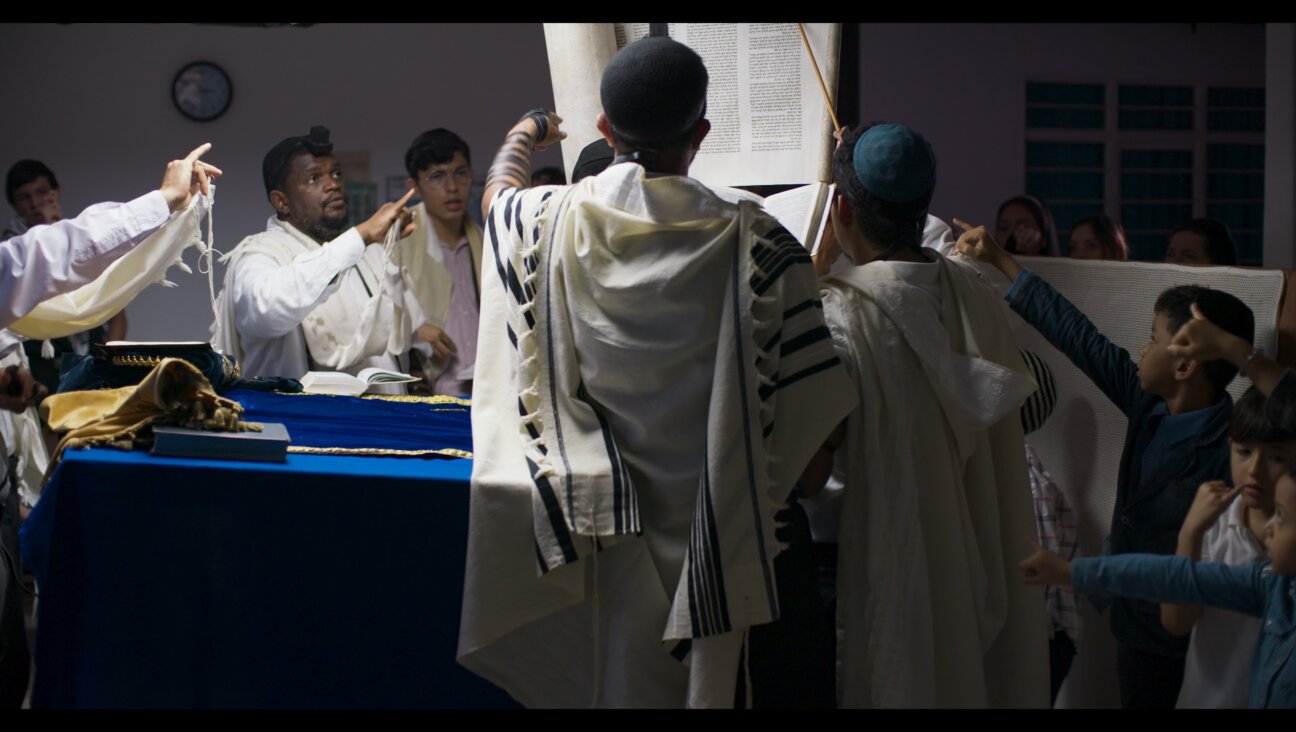Adult Education Courses Come to the Small Screen
Adults seeking to bolster their knowledge of Judaism have an alternative to attending adult education classes or slogging through a textbook: They can turn on their videocassette recorders.
A number of Jewish courses are now available on videotape — as well as on DVD, compact disc and audiotape — as part of an adult-education series offered by the Teaching Company, which has been recording lectures by college professors since 1989. Course offerings include “Great Figures of the Old Testament,” “Jewish Intellectual History: 16th to 20th Century” and “Great World Religions: Judaism.”
Judaic studies are a growing part of the company’s curriculum of nearly 200 courses, which cover everything from astronomy to jazz, ancient history to modern economic theory. The Jewish-themed courses are designed to appeal to observant Jews and to the newly religious, as well as to those from other faiths, according to founder and CEO Tom Rollins.
The diversity of the audience inspired Amy-Jill Levine, E. Rhodes and Leona B. Carpenter professor of New Testament studies at Vanderbilt University Divinity School, to get involved. As an Orthodox Jew who specializes in the New Testament, she felt that the company’s previous offerings about religion perpetuated unflattering misconceptions of Judaism. She produced courses about both the Old and New Testaments as a way of promoting interfaith dialogue.
“I find it helpful to break down some of the stereotypes people hold of both Judaism and Christianity,” she said.
Other religious studies scholars, in contrast, are motivated simply by a desire to reach a greater number of Jews. “As you get older, you start to ask yourself, ‘Who’s listening to me out there, and how can I get a wider audience?’” said David Ruderman, Joseph Meyerhoff professor of Modern Jewish history at the University of Pennsylvania, who leads a 24-lecture series on Jewish intellectual history. He has sold five or 10 times as many tapes as he has any one of his books.
In Ruderman’s opinion, the tapes’ success is driven by an increasing number of retirees who are aiming to be life-long learners. “This is a bonanza for those of us in Jewish studies, because so many of them are Jewish and interested in Jewish studies,” he said. At the University of Pennsylvania, which allows retirees to audit lecture courses, one-third of the students in his classes are over 60.
But if recording lectures on tape seems like an easy way to win new students, the professors involved say that the process is harder than it looks. The Teaching Company employs a staff of full-time recruiters who scour America’s campuses for professorial prospects, who then must record an audition tape. The invitation to record a series is extended only if a survey of the Teaching Company’s customers yields high marks. “This process is more complicated than getting tenure at a university,” Ruderman said.
The lectures themselves are, of course, slightly less interactive than their live counterparts. Although the tapes suggest that professors are lecturing to a small class at an idyllic university — fully equipped with mahogany furniture and views of red brick and ivy — the sound stage in Virginia is nothing like a regular classroom.
“I don’t know if I’m revealing a professional secret here, but on the tapes, where there are crowd shots… that’s all artificial,” Ruderman said. “Basically you’re speaking to yourself.”
Levine, however, finds that imaginary students have a charm all their own: “I don’t have to grade papers at the end of the semester.”
A message from our Publisher & CEO Rachel Fishman Feddersen

I hope you appreciated this article. Before you go, I’d like to ask you to please support the Forward’s award-winning, nonprofit journalism so that we can be prepared for whatever news 2025 brings.
At a time when other newsrooms are closing or cutting back, the Forward has removed its paywall and invested additional resources to report on the ground from Israel and around the U.S. on the impact of the war, rising antisemitism and polarized discourse.
Readers like you make it all possible. Support our work by becoming a Forward Member and connect with our journalism and your community.
— Rachel Fishman Feddersen, Publisher and CEO























